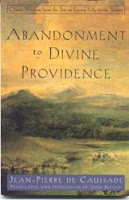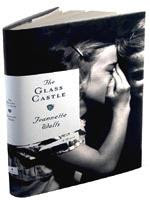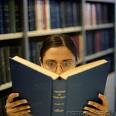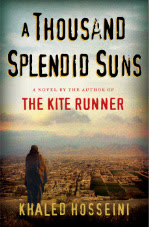
 by Jean-Pierre De Caussade
by Jean-Pierre De CaussadeStarted: 13 September 2007
Finished: 26 September 2007
Finished: 26 September 2007
There are some books which are almost too good to be able to describe.
It is the same way with people--some are too incredible for mere words, no matter what the words. When I was in the military, I could write an Airman Performance Report or an Officer Evaluation Report on those who worked at average or even above average level, but when it came time to writing annual evaluations on those people who were superstars, no words could ever do justice to such individuals. I'd struggle for days, stay up nights and feel dissatisfied with whatever I wrote in the end. Please bear that in mind here--this is just such a book.
This 33 karat diamond of a book wasn't published until a hundred and ten years after the author's death. Father Caussade never knew he wrote this book; what we read today was originally a collection of letters written when he was the spiritual director to the Visitation nuns of Nancy in France--as well as notes from talks he gave them.
Born in 1675 in the south of France, there is almost nothing known about Caussade--no picture survives, no physical description, and very few facts. But we do know he was born during an era when the Catholic faith was rich and vibrant; he grew up in the shadow of such giants as St. John of the Cross, St. Teresa of Avila, St. Francis de Sales and St. Jane de Chantal. In fact, although he was a Jesuit, his writings reflect more Carmelite and Salesian spirituality, than they do Ignatian influence.
One of the many beautiful things about this book is its simplicity. Another is its brevity. I have read both versions--translations--depicted above, Sacrament of the Present Moment, being the newer of the two. I prefer the older, but each has its place. Both titular phrases are Fr. Caussade's own words for the profound yet childlike concept he is trying to teach us. Remain in the here-and-now; that is where the incarnate Christ dwells.
'Short books often have great power.'¹ This one is a perfect example. There is one central theme and it is -- give or "abandon" yourself to God/Divine Providence -- and no harm can come to you. "Be Not Afraid," as Jesus said, and Pope John Paul II reiterated in his late twentieth century pontificate. The book is a series of meditations, meant to be consumed in small bite-sized pieces and then savored or contemplated. That is why it is perfect both as an audio book and a devotional. It constantly circles back to the gentle reminder we have but one three-fold duty--to abandon ourselves to His Will, trust Him in everything and live in the Present Moment. Such a sweetly elemental principal! We humans want to complicate everything; He wants to simplify things. We want to hold on to our problems; He wants to relieve us of them.
Recently, I have been filling my poor head with facts from confusing technical reading which doesn't clarify or solve anything. Fortunately, at the same time, I have also been listening to my Ignatian Press tapes, while driving in the car, of Mark Taheny as he reads Abandonment. Talk about peace and transport--peace in transport. I look forward to my time alone absorbing these Christ-like words which reassure me that all I need to do is surrender to Him and love. Do my Christian duty always and forget about what others think about me. If I am misunderstood, so much the better--so was He. And when I slip up and fall into sin--which I will do (as we all do)--I throw myself on His Loving Mercy.
Let go of the past. Forget about the future. Be in the present. He is taking care of everything else. All things work together for our good if we let Him work in our lives. What does not make sense now, does not matter. If He wills it, it is--that is enough.
As with most spiritual books different parts are helpful with each read. On this particular listening I was struck by the sixth and seventh sections of Chapter Six:
(6) An abandoned soul is not afraid of its enemies, but finds them useful allies.
'I am more afraid of what I and my friends do than anything done by my enemies. There is nothing more prudent than to offer no resistance to one's enemies and face them with simple abandonment. This is to run before the wind and stay at peace. Simplicity is always victorious when faced with worldly wisdom and easily avoids all its tricks without understanding them or even being conscious of them. God makes the soul take such suitable measures that they completely confound those who seek to trap it. It benefits by all their efforts, and what is meant to degrade it only increases its virtue.'
(7) An abandoned soul never need try to justify itself by word or deed. God does that.
'The huge, unyielding rock that shelters the soul from all storms is the divine will, which is always there, though hidden beneath the veil of trials and the most commonplace actions. Deep within those shadows is the hand of God to support and carry us to complete self-abandonment. And when the soul has arrived at this sublime state it need fear nothing which is said against it, for there is no longer anything for it to do in self-defense.'
These are not the complete sections, but I have quoted enough to convey the gist of each. The reminder to me was that the reading I had been doing--at someone else's request--was looking for a worldly solution to problems. Listening to Fr. Caussade I remembered that at core, all problems are essentially spiritual because we are spirit. One of my favorite sayings is, "We are spiritual beings having a human experience." Yes, I am a sinner; we all are. We sin every day by our thoughts, words and actions, but God forgives us for all our sins, so long as we truly repent. The only sin He can't forgive is the one for which we are not truly sorry.
I am eternally grateful for this wonderful little book--which I have already read many times--and to which I hope to return many more times. God bless you Father Caussade!
*****
1 John Beevers, translated by with an Introduction by, Abandonment to Divine Providence, copyright 1975, Image Books, Doubleday.











